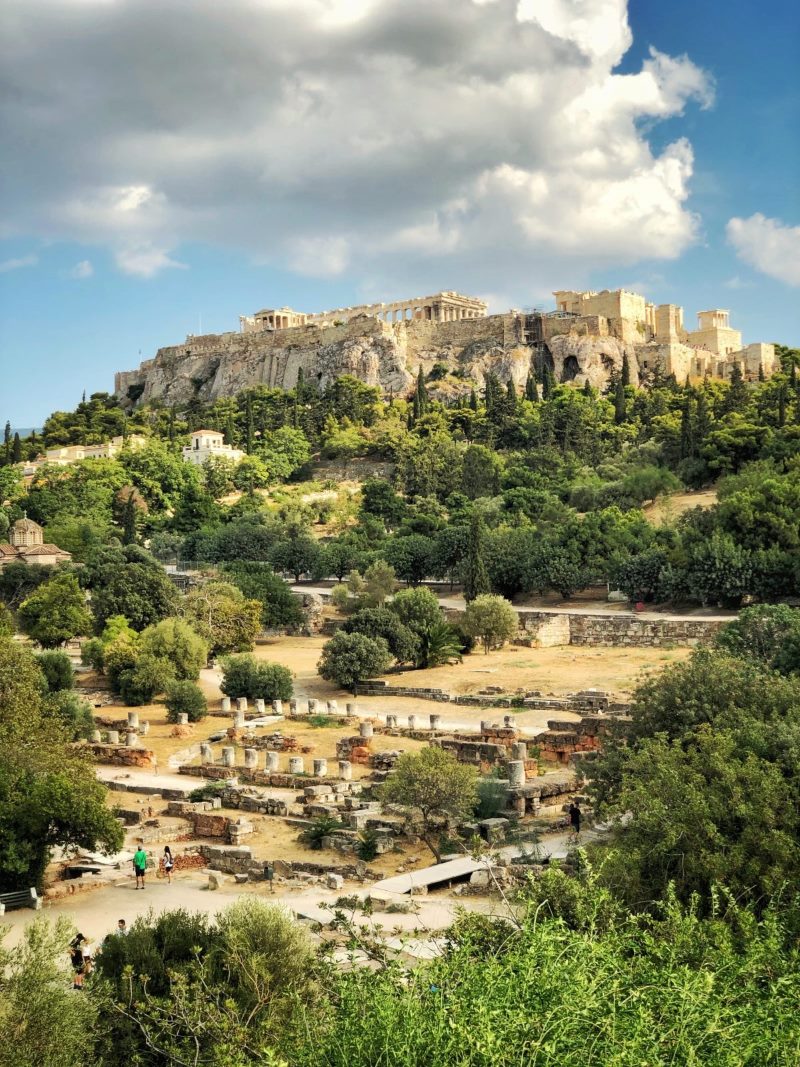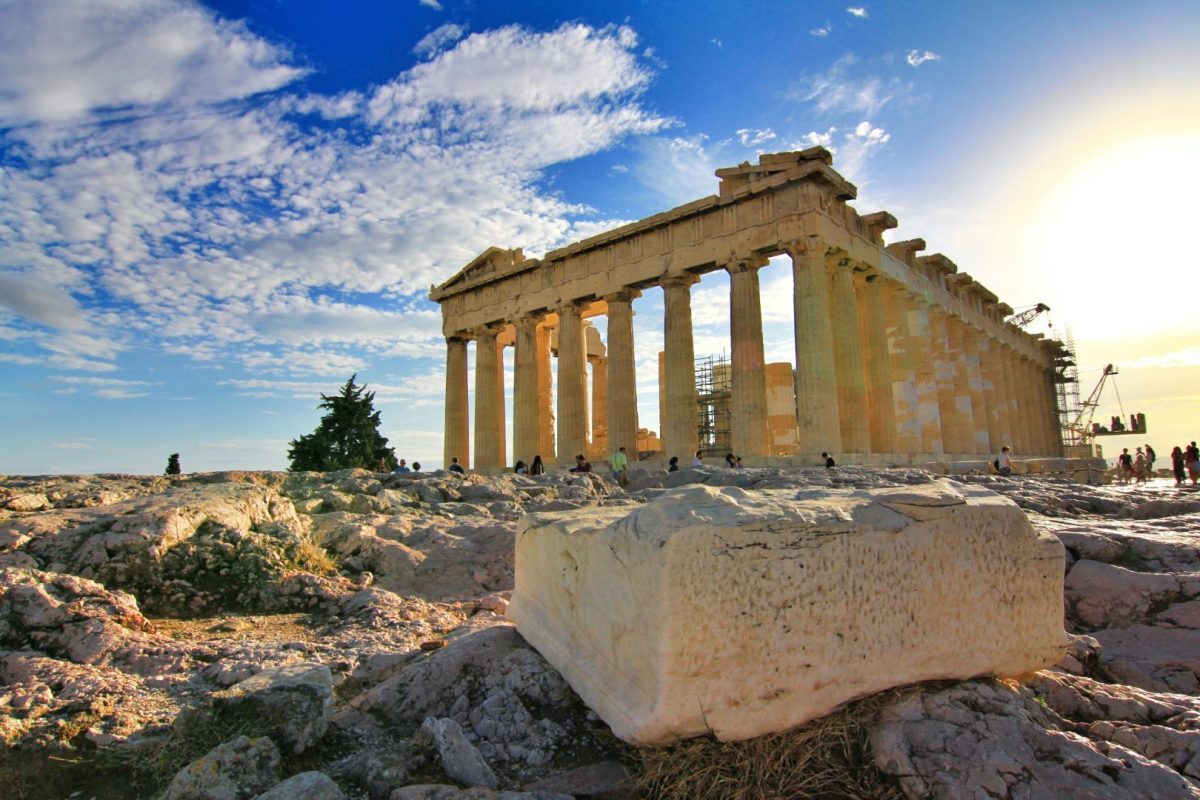How to Plan Your 4-Day Classical Greece Tour from Athens
Are you a history buff looking for an opportunity to explore ancient Greece? Then, the 4-day tour of Epidaurus, Mycenae, Olympia, Delphi, and Meteora is perfect for you. This tour takes you on a journey through Greece’s rich heritage, letting you witness four UNESCO-listed classical sites and several other iconic landmarks. Here’s what you need to know to plan your perfect 4-day Greece tour from Athens.Day 1: Athens – Corinth Canal – Mycenae – Epidaurus – Nafplion – Olympia
Your tour starts with an early morning pick-up from your Athens hotel. After a brief introduction to your expert guide, you will set off on a scenic drive towards Peloponnese. Along the way, you will cross the famous Corinth Canal and enter the heart of ancient Greece. You will first visit the beautiful town of Mycenae, a UNESCO-listed site known for its imposing Lion’s Gate and ancient royal tombs. Your guide will take you on a walking tour of the archaeological site, explaining the significance of the ruins and describing the history of this once-great civilization. Next, you’ll travel to the stunning Epidaurus Theater, a UNESCO-listed site that dates back to the 4th century BC. You’ll learn about the theater’s construction, relish its stunning acoustics and admire the hillside setting with its stunning views. In the afternoon, you’ll experience the charming coastal city of Nafplion, with its beautiful Venetian architecture, traditional stone streets, and historic landmarks. You’ll have plenty of free time to explore the city and enjoy a leisurely lunch before departing for Olympia. Upon arrival in Olympia, you’ll check into your centrally located 4-star hotel where you’ll enjoy dinner and a well-needed rest.Day 2: Olympia – Delphi
After a hearty breakfast at your hotel, you’ll start the day with a guided tour of Olympia, the birthplace of the Olympic Games. You’ll explore the Archaeological Site of Olympia, home to ancient temples, athletic fields, and the Olympia Stadium. You’ll visit the Olympia Archaeological Museum, where you can admire a collection of the best Greek sculptures found in the sanctuary. Later, you’ll drive through the Peloponnese to the beautiful mountain town of Delphi. After checking into your 4-star hotel upon arrival, you’ll savor dinner and relax for the night.Day 3: Delphi – Kalambaka
On day 3, you’ll explore Delphi, an archaeological site of great importance that sits at the foot of Mount Parnassus. You’ll visit the ruins of the Temple of Apollo, a treasured landmark that features in many ancient Greek myths. You’ll also explore the Delphi Archaeological Museum and see relics like the Sphinx of Naxos and the Charioteer of Delphi. In the afternoon, you’ll travel to the nearby town of Kalambaka, the gateway to the spectacular Meteora. You’ll spend the night in a 4-star hotel in Kalambaka, enjoying dinner before retiring for the evening.Day 4: Meteora – Athens
The final day of your Greece tour takes you to Meteora, a unique geological phenomenon. These towering monoliths, dotted with ancient monasteries perched on the top, are one of Greece’s most stunning natural wonders. You’ll visit some of the famous monasteries like the Holy Monastery of Great Meteoron and the Monastery of St. Stephen, built on the top of sheer rock towers. You’ll enjoy lunch in the town of Kalambaka before making your way back to Athens. You’ll arrive back in the city by late afternoon, giving you enough time to explore Athens before the end of your trip.Book Your Tour Now
Your 4-day Greece tour is surely an unforgettable experience. You get to explore Greece’s rich heritage, witness four UNESCO-listed classical sites, and several other iconic landmarks. To book your trip, visit the official tour page, where you can find all the information you need. With expert guides, comfortable transportation, overnight stays in centrally located 4-star hotels, and meals included, this tour guarantees you an exciting vacation experience that will leave you with lasting memories. Book your tour today and set off on an exciting adventure of discovering the wonders of Classical Greece!
FAQ About Athens
1. What is Athens?
Athens is the capital and largest city of Greece. It is one of the oldest cities in the world, with a history that dates back over 3,400 years. Athens is known for its ancient landmarks, including the Acropolis and the Parthenon, as well as its vibrant contemporary culture, delicious cuisine, and picturesque streets.2. When is the best time to visit Athens?
The best time to visit Athens is during the spring and fall, from March to May and September to November. The weather is mild, with comfortable temperatures, and there are fewer tourists than in the summer months. However, if you plan to visit Athens in the summer, be prepared for hot temperatures and large crowds.3. How do I get to Athens?
Athens is served by Eleftherios Venizelos International Airport, located about 12 miles from the city center. There are also ferry services from other Greek islands and neighboring countries. Once you arrive in Athens, you can take a taxi or public transportation, including buses, trains, and the metro, to get around the city.4. What are some must-see landmarks in Athens?
Athens is home to numerous landmarks, but some of the most popular include the Acropolis, the Parthenon, the Ancient Agora, and the Temple of Olympian Zeus. Other notable attractions include the National Archaeological Museum, the Benaki Museum, and the Plaka neighborhood.5. What is the food like in Athens?
Athens is known for its delicious food, which includes traditional Greek dishes like moussaka, souvlaki, and tzatziki. There are also many bakeries and pastry shops where you can try local sweets like baklava and kataifi. Make sure to also try the local olive oil and feta cheese, which are staples of Greek cuisine.6. How can I get around Athens?
Athens has an extensive public transportation system that includes buses, trains, and the metro. There are also taxis and ride-sharing services available. Walking is also a great way to explore Athens, especially in the city center, where many of the landmarks are located.7. What is the currency used in Athens?
The currency used in Athens is the euro (€).8. Is English spoken in Athens?
Yes, many people in Athens speak English, especially those in the tourism industry. Signs and menus in popular tourist areas are often in both Greek and English.9. What are some popular souvenirs to bring back from Athens?
Some popular souvenirs to bring back from Athens include olive oil, honey, traditional Greek costumes, and pottery. You can also find many shops selling jewelry, textiles, and other handcrafted goods.10. How safe is Athens?
Athens is a safe city, but like any large city, there is a possibility of crime, especially in tourist areas. Make sure to take precautions, like keeping your valuables close, and staying aware of your surroundings. Petty theft and pickpocketing are the most common crimes, so be careful in crowded areas and on public transportation.
How to Spend Your Time as a Tourist in Athens
Athens is one of the most popular tourist destinations, well-known for its rich history and architectural marvels. This city is home to some of the greatest ancient Greek landmarks, museums, and art galleries. Athens is a prime example of a modern city that has managed to preserve its ancient history and provide tourists an unparalleled visit. Here is a step-by-step guide on how to make the most of your time as a tourist in Athens.Step 1: Visit the Acropolis
A trip to Athens is incomplete without visiting the Acropolis. The Acropolis is located at the heart of Athens and is home to some of the greatest ancient Greek architectural marvels such as the Parthenon, the Erechtheion, and the Propylaea. The best time to visit the Acropolis is during the early hours of the day when the crowds are minimal, and the temperature is cooler. The Acropolis opening hours are typically from 8 am to 8 pm, but it’s advisable to check their website for up-to-date information.Step 2: Discover the Acropolis Museum
Right next to the Acropolis lies the Acropolis Museum, which is a must-visit for tourists looking to explore more of the city’s history. This museum is dedicated to showcasing the original artifacts from the Acropolis, and its beauty and design are worth admiring. The museum is open from 8 am to 8 pm, with a reduced timetable on Mondays, and is definitely worth taking an hour or two to explore.Step 3: Walk Through Plaka and Anafiotika
Plaka and Anafiotika are some of Athens’ oldest neighborhoods, providing a glimpse into the city’s ancient past. Plaka features narrow winding streets, beautiful architecture, and quaint shops and cafes that truly capture the essence of Athens. Anafiotika, on the other hand, has a more rustic feel and boasts bright white houses and narrow alleyways. Both neighborhoods are located at the base of the Acropolis and are within walking distance of one another.Step 4: Explore the Ancient Agora
After spending time at the Acropolis, take a walk through the Ancient Agora. The Ancient Agora was the city’s marketplace and was a hub of activity during ancient times. Today, you can still see the ruins of the old marketplace and the iconic Temple of Hephaestus. The area is open daily from 8 am to 8 pm, with reduced hours on certain days.Step 5: Take an Afternoon Stroll at the National Gardens
The National Gardens are a beautiful oasis of tranquillity located just behind the Greek Parliament. They cover an area of 15.5 hectares and offer beautiful greenery, sculptures, and flowers to enjoy. The gardens are also home to many species of birds and are an excellent spot for nature walks or just a lazy afternoon stroll. The gardens are open from sunrise to sunset, and admission is free.Step 6: Visit the Panathenaic Stadium
The Panathenaic Stadium is a historic marble stadium located in the heart of Athens, where many Olympic games were held. Visiting the stadium is a unique experience as it offers visitors the chance to follow in the footsteps of ancient Greek athletes. During your tour of the stadium, you can marvel at the architecture and design of the stadium, which has been well preserved over the centuries. The stadium is open daily from 8 am to 7 pm, and admission is around 5 euros.Step 7: Indulge in Greek Cuisine
Athens is famous for its Greek cuisine, which is a must-try for food lovers visiting the city. Some of the most popular dishes include moussaka, souvlaki, and Greek salads, all of which you can find in restaurants throughout the city. You can also try street food, such as savoury pies from local bakeries, which are both delicious and affordable. Many restaurants also offer outdoor seating, so you can enjoy a meal while taking in the surrounding scenery.Step 8: Catch a Breath-taking Sunset at Lykavittos Hill
Lykavittos Hill is a must-visit for anyone looking to catch a stunning sunset in Athens. The hill is the highest point in Athens and provides a panoramic view of the city. You can reach the top of Lykavittos Hill by taking a cable car or by walking up the winding pathway. Once you reach the top, you can enjoy the stunning view of the sunset while relaxing at one of the cafes.Book Your Tour Now
Athens is a vibrant city, steeped in history and culture. From the Acropolis to the Ancient Agora to Plaka and Anafiotika, there is no shortage of things to do and see in Athens. Whether you are a history buff or a food lover, there is something for everyone in this beautiful city. Take this guide with you as you explore Athens, and you’re sure to have an unforgettable experience.Table of Contents

